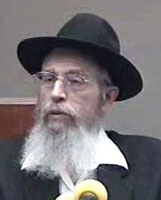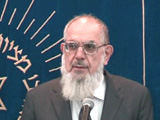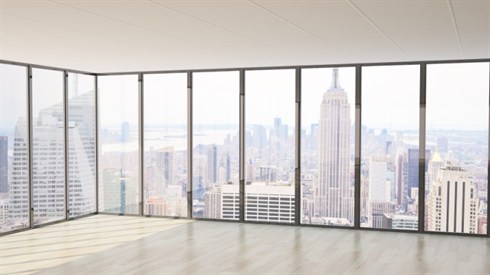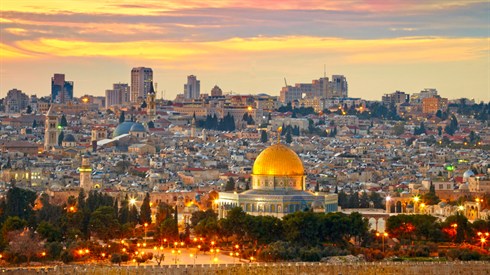- Jewish Laws and Thoughts
- Plants and Animals
958
A community has been renting a house for their shul. Though the membership has now grown, thank G-d, the building has not and is no longer large enough to accommodate their needs. Their landlord has allowed them to expand the building, even though doing so will require removing a fruit tree. May they expand the shul at the expense of the tree?
Question #2: Shady Mitzvah
We just moved into a new house, and the only place for a sukkah is shaded by fruit trees. May we level the trees in order to build our sukkah?
Question #3: Darkening Peaches
A peach tree that grew on its own is now blocking the light from entering our house. May we cut down the tree?
Question #4: George and the Cherry Tree
If cherry wood prices had spiked, would George Washington* have been permitted to chop down the cherry tree for its valuable lumber?
(*Please note: George Washington did not ask me a shaylah about chopping down the cherry tree. The other shaylos mentioned are all actual cases. With the exception of George, all names have been changed to protect individuals’ privacy. Since George was not Jewish, he was not required to observe this mitzvah.)
Answer:
In this week’s parsha, the Torah teaches:
When you lay siege to a city for many days to wage war against it in order to capture it, do not destroy its trees by wielding an axe against them, because from them you shall eat, and for this reason you should not cut them down. For, is a tree of the field a man, that you are besieging it? Rather, a tree that you know will not produce food – it you may destroy and cut down, and with it build a battlement against the city that is waging war against you, until you conquer it (Devorim 20:19-20).
The Ramban explains that the Torah is discussing a very specific situation, in which the Jewish army needs to construct an earthwork to attack the enemy city, and has available both trees that are producing fruit and others that are not. The Torah prohibits razing the fruit trees, since one has the option of using only those trees that do not produce fruit. However, should obliterating the fruit trees be helpful militarily, one may destroy them (Ramban Commentary ad loc., and in his notes at the end of Sefer HaMitzvos, "Mitzvas Asei #6 that the Rav omitted").
Use of Fruit Trees in War
Several possible scenarios exist in which razing fruit trees has battlefield benefit, and in all of these situations one may destroy the trees. For example, if there are not enough non-fruit trees available to build the earthwork or when the enemy might use the fruit trees either as cover, for wood or for food; in these cases, one may raze the fruit trees. What the Torah is banning is a scorched-earth policy of destroying everything around the city, simply to wreak devastation (Ramban Commentary, ad loc.).
Peach or Teakwood?
For this reason, some rule that if a non-fruit tree is valuable for use in furniture, one may spare that tree, even though as a result one will need to chop down fruit trees for the fortifications (Shu’t Chasam Sofer, Yoreh Deah #102, quoting Shitah Mekubetzes in the name of the Geonim). Thus, one could raze a fruit tree and use it for building the rampart and spare a teak tree for a commercially beneficial use.
Indirect Destruction
Looking back at the Torah’s verse that I quoted above, I would like to call attention to a redundancy: Do not destroy its trees by wielding an axe against it… you should not cut it down. The Torah appears to be stating the same thing twice. What additional lesson is the Torah teaching by repeating the command?
Some authorities, indeed, explain that there are two different negative commandments here (Baal Halachos Gedolos). The Sifrei explains that, with its seemingly redundant words, the Torah teaches that it is even prohibited to destroy the tree indirectly, such as by blocking its water source (see Lechem Mishneh, Hilchos Melachim 6:8).
In Peace Time
Although the Torah explicitly discusses razing trees in wartime, this prohibition applies equally in peaceful times. While comparing destroying trees to injuring oneself, the Mishnah states: Someone who cuts down his trees, although it is prohibited for him to do so, is not obligated to pay (Bava Kamma 90b). In its commentary on this Mishnah, the Gemara records the following discussion: Rav said: "One may not chop down an aging date palm, as long as it is still carrying a kav-weight of dates…" Ravina noted: "If the tree was worth more for its lumber, one may chop it down" (Bava Kamma 91b). Thus, the Mishnah teaches that one may not level a productive fruit tree, and the Gemara explains that a tree valued for its lumber and not its fruit, either because of the quality of its lumber or because of its age, is no longer considered a "fruit tree" and may be cut down.
Thus, one can explain that the Torah means: Even when you are involved in warfare, and the tendency is to destroy randomly everything in one’s path, keep in mind what fulfills your goal and what does not, and destroy only what is required. Surely, we must build a rampart, but we do not need to destroy productive fruit trees that the enemy cannot use to help him in the battle. However, just as one may destroy a fruit tree in war when there is a tactical reason to do so, one may chop it down in peacetime, when it is no longer productive. In addition to the two cases mentioned above — when it is worth more as wood, or it is not producing enough fruit to make its maintenance worthwhile — the Gemara adds a third example when one may raze a fruit tree: when it is damaging other fruit trees (Bava Kamma 91b- 92a; Rambam, Hilchos Melachim 6:8-9).
Clear for Construction
(1) The Goldbergs purchased a new house, hoping to expand it onto the huge lot that they have that contains several beautiful fruit trees. May they remove the trees to expand their house?
(2) or, the question I asked above: "A peach tree that grew on its own is now blocking the light from entering our house. May we cut down the tree?"
Beneficial Razing
May one raze a fruit tree in order to build on its location? May one raze an aging, but still productive, fruit tree to move new tree saplings to its location? Fruit farmers regularly level areas that are aging and becoming less productive in order to replant a new orchard in their place. Is this halachically permitted?
What we are asking is: Can we expand the three cases where the Gemara permitted destroying a fruit tree to other cases when it is beneficial to remove the tree?
One very early authority, the Rosh (Bava Kamma 8:15) seems to accept this approach, permitting cutting down a fruit tree to create an area on which to build a house. It seems that he understands that the Torah prohibited destroying a fruit tree only when there is no benefit from the destruction, or at least less gain than the tree is worth. Many authorities indeed rule like the Rosh and permit razing a tree when there is some resultant advantage (Taz, Yoreh Deah 115:6; Shu’t Chavos Yair #195; Shu’t Har Tzvi, Orach Chayim 2:102). Other authorities permit this only when the house is worth more than the tree (She’eilas Yaavetz 1:76). Similarly, it would seem to me that, according to these authorities, there is a halachic basis for allowing the approach of farmers to destroy older trees and replace them with new ones.
However, other authorities dispute this conclusion, rallying evidence that other Rishonim prohibit chopping down a viable fruit tree for the sake of construction (Shu’t Beis Yaakov #140, quoted by above-mentioned Har Tzvi; Shu’t Meisheiv Davar 2:56).
A Shady Deal
Let us refer to one of our opening questions: A peach tree that grew on its own is now blocking the light from entering our house. May we cut down the tree?
This actual question was addressed to the Chavos Yair, a great 17th century Central European posek.
Based on the above-quoted Rosh, who permitted cutting down a tree in order to construct a house, the Chavos Yair allowed chopping down the offending peach tree. However, the Chavos Yair rules that this is permitted only when he cannot simply remove some branches to allow the light into his house. When one can simply remove some branches and spare the tree, the Chavos Yair prohibits chopping down the entire tree, since it is unnecessary to do so. Even though the branches will eventually grow back again and block his light, the Chavos Yair does not permit chopping down the tree, but requires one to repeatedly trim it, since it is not necessary to destroy it for the sake of the house. Thus, although he accepts the Rosh’s ruling permitting removing a tree for the sake of a dwelling, the Chavos Yair notes that this is permitted only when one cannot have the house and eat the fruits, too.
Expanding Living Space
The Chavos Yair further rules that the Rosh, who permitted chopping down a tree to have construction done on its place did so only when the construction filled an essential need for the house, and not when it was merely to make the house nicer, such as to widen the yard or to provide a place to relax.
At this point, we can probably answer the Goldbergs’ question. They purchased a new house, hoping to expand it onto the huge lot that they have that contains several beautiful fruit trees. May they remove the trees to expand their house?
Even according to the Rosh, they may remove the trees only to provide something essential for the house. Since the house was already usable, it is prohibited for them to raze the trees. (However, we will soon share with them a possible solution.)
Some are Much Stricter
The Chavos Yair follows the Rosh’s approach and permits removing a fruit tree if there is no other way to build a house. However, not all later authorities are this lenient. When asked this exact question, "May one cut down a tree to construct a house," the Netziv, one of the leading authorities of 19th century Lithuania, was not comfortable with relying on the opinion of the Rosh and permitting it. Rather, he concluded that there are early authorities who disagree with the Rosh and permit razing a fruit tree only in the three situations that the Gemara mentions: when the tree is more valuable as lumber, when it is producing almost no fruit, or when it is affecting the growth of other fruit trees. In the first two instances, it is no longer considered a fruit tree. The Netziv provides two different reasons why, if it is still considered a fruit tree, one cannot remove it, unless it is damaging other trees.
(1) One may chop down the tree only because it is damaging other fruit trees, but for no other reason.
(2) Chopping down a fruit tree is permitted only when removing it provides immediate benefit. However, when one clears a tree to make room for construction, there is no immediate benefit when one clears away the tree. The benefit is not realized until one builds the house, which does not take place until later, and we do not see from the Gemara that this is permitted.
Following this latter approach, it is prohibited to destroy older trees and replace them with new ones, and halachically-abiding farmers must wait until the trees are hardly productive before replacing them with new saplings.
Hazardous to one’s Health
There is another reason to be concerned about chopping down fruit trees. In addition to the Torah’s prohibition, Chazal consider cutting down trees to be dangerous. To quote the Gemara, "Rabbi Chanina stated: My son Shivchas died only as punishment for cutting down a fig tree prematurely" (Bava Kamma 91b). Thus we see that cutting down a fruit tree is not only an issue of bal tashchis, but also a safety concern.
What About for Temporary Use?
A community was renting a house from a non-Jew for their shul. The number of congregants is now, thank G-d, exceeding the capacity of the shul building, and the gentile owner has allowed them to expand the building on which they still have nine more years on their lease. However, there is only one direction in which they can expand their building, and there is a grape vine growing there, which they would need to uproot to perform their expansion. The gentile owner has permitted them to rip up the vine for this purpose. The community’s question is whether expanding the shul is a valid reason to permit ripping up a grape vine, which is halachically considered a fruit tree; particularly since the community’s benefit may be only temporary, since the gentile landlord may not renew their lease, and they may then need to look for new quarters.
The Yaavetz ruled that even the temporary use of a shul is a valid reason permitting the ripping up of the grape vine. However, because of his concern that it is dangerous to do so, he advises hiring a gentile to uproot the vine. Since the mitzvah of destroying fruit trees is not included among the mitzvos that a ben Noach must observe, the gentile is not required to observe it, and therefore it is not dangerous for him to remove the vine.
The Yaavetz then mentions another factor. In every instance mentioned by the earlier authorities, the tree could not be removed and planted elsewhere. The Yaavetz suggests that there is no prohibition to uproot a fruit tree, if one will replant the tree elsewhere. Thus, he concludes that even when no other solution exists to permit destroying a fruit tree, one may remove it by its root and replant it elsewhere and then use the land for whatever one chooses.
Saving the Goldbergs!
The Yaavetz’s suggestion is very welcome news to the Goldbergs. They purchased a new house hoping to expand it onto the huge lot that they have that contains several beautiful fruit trees. May they remove the trees to expand their house?
According to the Yaavetz, they may remove the trees and plant them elsewhere, and then expand their house onto the extended lot.
This ruling of the Yaavetz is not without its detractors. The Chasam Sofer (Yoreh Deah #102) concludes that one should not rely on this idea of the Yaavetz to remove a tree when other lenient reasons do not apply. However, he does accept the Yaavetz’s rule as a stringency — that if one can replant a fruit tree it, one may not destroy it, since the demolition of the tree is unnecessary. Thus, if a fruit tree is damaging other trees, one may destroy it only when replanting it is not an option.
Shady Mitzvah
At this point, I would like to discuss one of the above-mentioned questions.
"We just moved into a new house, and the only place where we can put a sukkah is in an area which is shaded by a fruit tree. May we chop down the tree in order to have a place to build our sukkah?"
This exact question was asked of Rav Tzvi Pesach Frank, who was the rav of Yerushalayim for many decades until his passing in 1960. Rav Frank cites and analyzes many of the above-mentioned sources, and is inclined to be lenient, reasoning that the performance of a mitzvah cannot be considered a destructive act. He concludes that one should have a gentile remove it, but not as an agent for a Jew, although he does not explain how one accomplishes this (Shu’t Har Tzvi, Orach Chayim II #102).
Conclusion
Thus, we see that there are different ways of understanding when one may destroy a fruit tree for a valid reason, and each person should ask his own rav what to do in his particular circumstances.
The Ramban explains that the reason for the mitzvah is that one should have trust in Hashem that He will assist us in vanquishing our enemies, and then we will be able to use the fruit from this tree. So why destroy it? One should treat the tree as if it is already in my possession!
This Shiur is published also at Rabbi Kaganof's site

Redeeming a Firstborn Donkey!
Rabbi Yirmiyohu Kaganoff | Shvat 3 5780

Is papaya a tree?
Rabbi Yirmiyohu Kaganoff | Shvat 2 5779
Hospital Treetment
Rabbi Daniel Kirsch | Nissan 4 5780

What Is Judaism’s View Of Dogs As Pets?
Rabbi Stewart Weiss | Elul 11 5781

"And Zion said, 'God Has Abandoned Me!'"
Rabbi Chaim Katz | tamuz 5755

“G” Dash “D”?
Rabbi Daniel Mann | Adar 21 5780

The Bracha on Blossoming Trees
Rabbi Yirmiyohu Kaganoff | Adar II 27 5782

"...but he could not become warm."
Rabbi Shimon Klein | 5761
Daf Yomi Sanhedrin Daf 105
R' Eli Stefansky | 3 Nisan 5785
Daf Yomi Sanhedrin Daf 106
R' Eli Stefansky | 4 Nisan 5785
Daf Yomi Sanhedrin Daf 107
R' Eli Stefansky | 5 Nisan 5785













